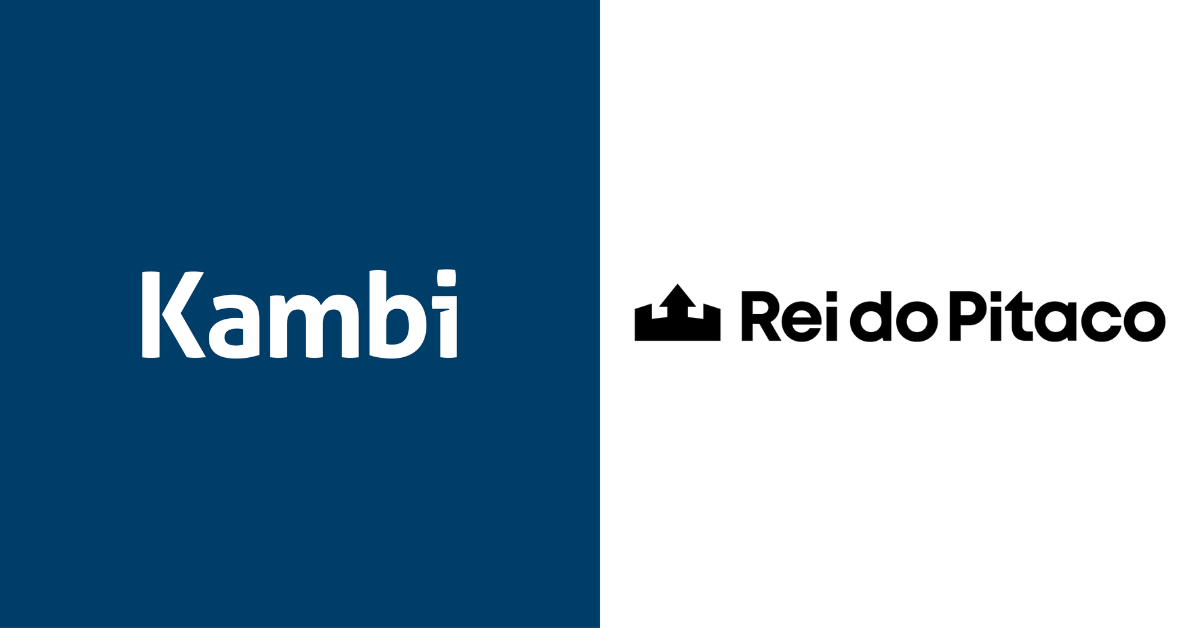

Cecilia Wachtmeister is the EVP of Business and Group Functions at Kambi. Responsible for functions including business development, partner success, strategy, and marketing, we caught up with Cecilia to learn more about what makes Kambi unique, recent changes Kambi has had to overcome, and the role sports betting will play within the industry this year.
Please give a brief introduction of yourself and Kambi.
My background is in engineering having gained a MSc degree in Industrial Engineering and Management. After university, I joined telecommunications company Ericsson, where I spent more than 25 fantastic years carrying out several roles across the world. This gave me the opportunity to enjoy different positions and assignments, as well as live in countries and experience a variety of cultures. My career at Ericsson was oriented towards sales, business negotiations, strategy, and business development with a mixture of technical and international exposure.
In 2017, I joined Kambi, initially as a board member, which gave me a good insight into the business and the industry. I found the sports betting industry to be fascinating, and one with many parallels to the telecommunications industry. With growing confidence that my experience could be of benefit to Kambi, as well as the vision I had for Kambi and its potential, I joined full-time as EVP Business and Group Functions, effectively taking responsibility for all functions outside of product and finance, for example, business development, partner success, strategy, and marketing.
What makes Kambi unique?
There are many things that I feel make Kambi unique but there are two that immediately spring to mind. Firstly, the fact we are 100 percent focused on sports betting and have been since the very start, driven by a passion for sports that goes right to the top of the management team. Although we were formed in 2010, Kambi, for all intents and purposes, has been around since 1997, where we were the sportsbook for Unibet, which means we understand the needs and demands of B2C operators. This dedication to sports betting also enables us to focus 100 percent of our time and resources on delivering the best sportsbook possible and aren’t distracted by other verticals.
Secondly, it’s our business model. The key reason Kambi was created was that our founders understood that a maturing industry would raise the bar, in terms of both product and regulation, which would lead to higher costs and decreasing margins. What Kambi set out to achieve then, and does successfully today, was to offer a model whereby operators could pool resources to offer a high-performance sportsbook at a fraction of the cost. In reality, only a handful of operators with scale can manage the high costs associated with developing and maintaining an in-house sportsbook, particularly with the quality required. And in many of these cases operators are still reliant on one or more providers in certain areas to ensure delivery.
In addition to greater efficiencies, the creation of Kambi’s partner network means the combined data generated across our partners will always be more powerful than what operators can generate alone. For example, each bet placed is a data point which informs our prices. Every player engagement creates a product insight from which we can learn. Therefore, as the network increases, so does the amount of data we have at our disposal, giving us the ability to extract intelligence and insights to further improve the sportsbook experience.
What changes has Kambi had to make in order to adapt to the recent needs of the industry?
The truth is we are always evolving and learning. The industry moves at such a pace that you can’t afford to stand still. So whether that’s making those continuous product improvements, providing greater empowerment for operators to take more control in areas such as odds, UX and content, or ensuring we have the increased flexibility we need to meet the needs of regulators in jurisdictions from America to Australia and everywhere in between.
On that final point, compliance is of course one of the most important areas when offering a sportsbook. The varying regulations from state-to-state and country-to-country places huge demands on the sportsbook to ensure it always complies, particularly for those that operate across several jurisdictions. This complexity only increases with every new regulation. I’m pleased to say Kambi has an enviable record in this area, which is illustrated by our record of market-first launches in the U.S., getting our partners live ahead of the competition.
What are the top trends you see leading the transformation of the gaming industry?
I believe more operators will gravitate towards the Kambi model. I mentioned before that there were parallels between telecommunications and the sports betting and gaming industries, and I see the latter going down a similar maturity path as the former. By that I mean when competition grew fiercely many years ago in the telecommunications industry, margins became thinner which forced operators to outsource substantial portions of their operations to offload activities they declared to be non-core to reduce costs and improve strategic focus. These telecommunications giants became more focused on the customers and the areas in which they felt they could offer an advantage. To me, the analogy is very clear towards the gaming industry: as the industry matures and competition increases, it will not be economically viable for an operator to carry the entire cost of developing and maintaining a high quality sportsbook––which is why I believe that an outsourced model will eventually be the prevailing model. Furthermore, the efficiencies on offer have never been more apparent than over the past 12 months, with Kambi’s partners free from the large fixed costs of in-house trading teams during a time with reduced sports events. The conversations we’ve had with some operators over the past few months suggests they’re already thinking about introducing more variable costs into their business.
The cost aspect is not the only reason why I believe in the Kambi model. Today, companies are looking to outside help for more fundamental reasons––to facilitate rapid organizational change, to launch new strategies, and to reshape company boundaries. In doing so, they are engaging in transformational outsourcing: partnering with another company to achieve a rapid, substantial, and sustainable improvement in enterprise-level performance. Kambi’s role is therefore not only to offer sportsbook operators cost efficiencies, but offer the value that leveraging our network data provides in terms of a powerful, yet flexible sportsbook that offers both quality to the end user and control to the operator, such as building their own IP and proprietary technology on our platform.
‘it’s incredibly invigorating to be part of a company that plays such an influential role in shaping what is a fast-growing industry that is yet to reach full maturity’
What is your favorite part of your job and why?
There’s no one single thing, but, in general, it’s incredibly invigorating to be part of a company that plays such an influential role in shaping what is a fast-growing industry that is yet to reach full maturity. For example, we work closely with our partners to grow their businesses in new jurisdictions, and are always engaged in active discussions with regulators, assuming an important role in securing an even-handed approach to establishing new compliance frameworks. Championing regulation is one of Kambi’s foundational principles, and we are proud to be at the forefront of the market as more territories regulate.
Also, being part of the management team and playing a role in the decision-making process in a rapidly growing company can be very rewarding. It is of course highly motivating to play such a role in creating a successful company and I’m driven by the desire to one day look back at what we achieved at Kambi with great satisfaction, knowing I was part of that success.
The question of what success looks like is an interesting one. In general, it is about keeping our three major stakeholders happy: shareholders, partners, and employees. For the latter, success would be to build a company that attracts highly talented people and enables them to reach their full potential, and should we do that then commercial success will follow, as will shareholder value.
What role do you see sports betting playing in the gaming industry this year and at G2E 2021?
There can be no doubt of the significant role regulation will play this year, with more states opening up and those that have not yet put in place a framework for mobile and online sports wagering taking a serious look at doing so––for example, New York. Sports betting will continue to grow as regulation expands, and states that have already regulated like Illinois, Colorado, and Indiana are also demonstrating plenty of room for further growth.
Now live in 12 states, Kambi, more than any other technology provider, has underlined our ability to meet the needs of the U.S. market, and we have a number of ambitious partners keen to capitalize on these developments.
Sports betting is a fast-growth vertical, one that is attracting great interest, and I would expect both its share of floorspace at G2E and the engagement of the investment community to continue to rise commensurate with this. We look forward to attending G2E and meeting with those keen to find out more about us.
Article originally appeared: https://www.globalgamingexpo.com/en-us/g2e-digital/g2e-insider/g2e-insider-january-2021-edition/industry-insiders-cecilia-wachtmeister-evp-business-and-group-functions.html











